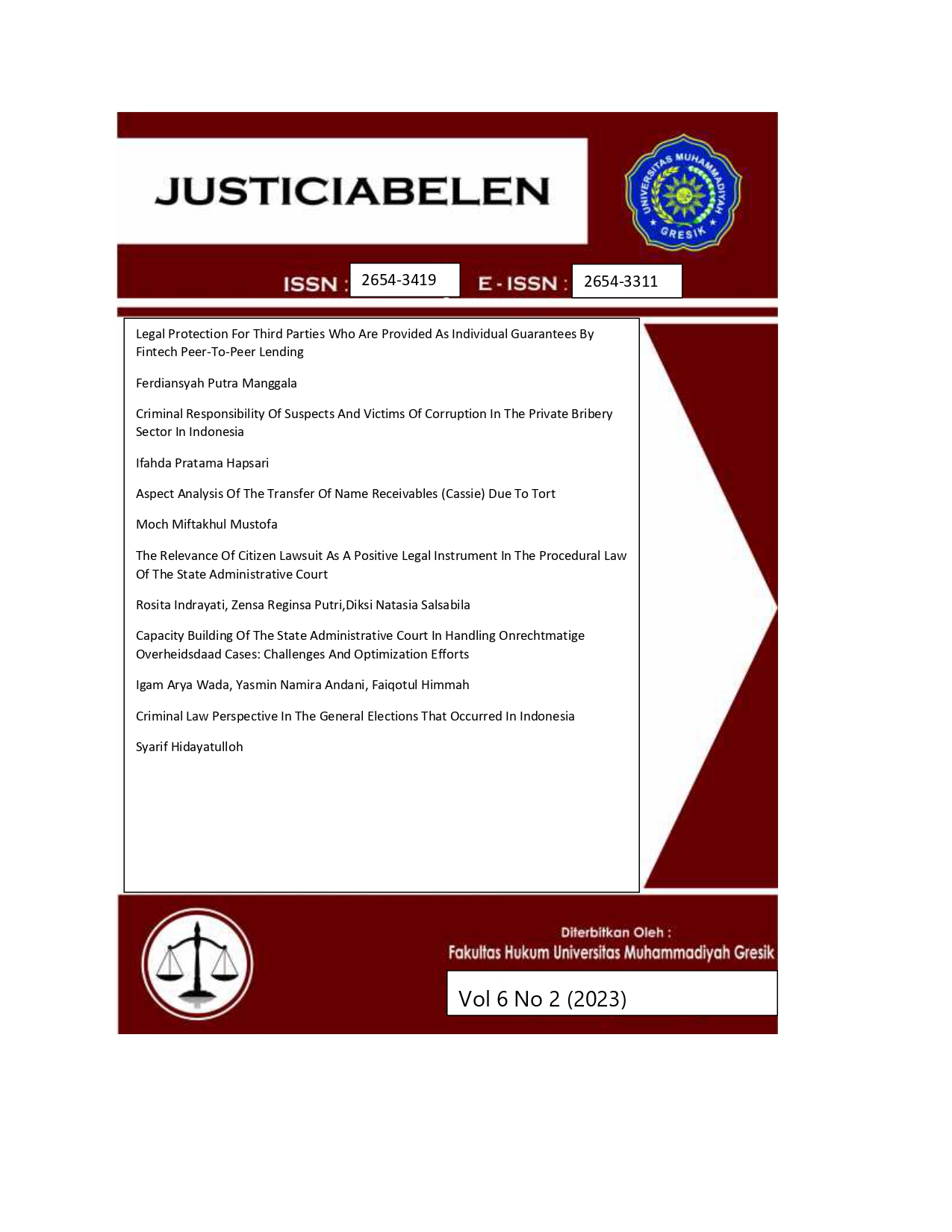Aspect Analysis Of The Transfer Of Name Receivables (Cassie) Due To Tort
DOI:
https://doi.org/10.30587/justiciabelen.v6i2.6994Keywords:
Cassie, Default, Accounts Receivable;Abstract
The practice of transferring receivables through the CASSIE (Certificate of Assignment for Debt Security) mechanism has become an important part of cash flow management and risk management in the business world. However, the potential risks arising from default, namely the debtor's inability to fulfill obligations under the agreement, also pose a serious challenge. In dealing with this risk of default, a normative approach based on legal, norm and regulatory aspects is the key to understanding the CASSIE legal framework and formulating effective mitigation strategies. From a creditor's point of view, transferring receivables aims to obtain liquidity more quickly, but the risk of default on the part of the debtor is a potential problem. The strategy of diversifying the transferred receivables portfolio and implementing credit insurance are relevant alternatives to overcome this risk. On the debtor's side, the transfer of receivables can have a negative impact when payment failure occurs. Therefore, debt restructuring steps, negotiations with creditors and efforts to restore financial conditions are very important. The impact that will occur due to default in the CASSIE context also deserves attention, considering that the impact can spread to various stakeholders in the business ecosystem. In the era of globalization, analysis must also consider aspects of international law and the potential impact of defaults that cross national borders. The breach of contract which was the main trigger for the transfer of debtors by CASSIE resulted in the transfer of the right to collect debts from debtors who failed to pay to the injured party and institutions, policy makers and researchers in the fields of law and finance to overcome risks with a sustainable approac.

